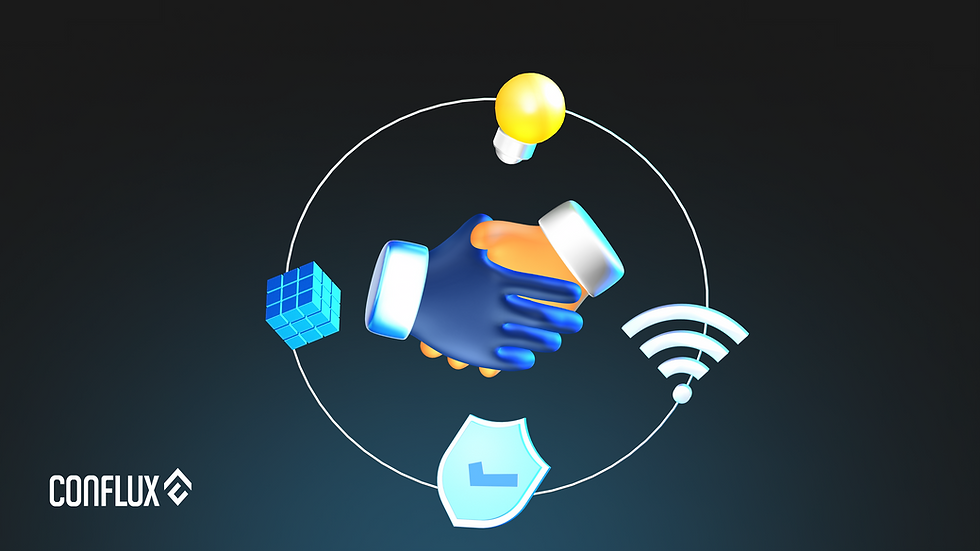Protecting Your Digital World: The Power of Blockchain
- Conflux Network
- Jul 30, 2024
- 2 min read

Keeping your data safe is now more important than ever. With cyber threats on the rise, you need robust security measures. Blockchain technology, originally developed for cryptocurrency, can significantly boost your cybersecurity. Let’s explore how blockchain can protect your data from cyber threats in a simple and easy-to-understand way.
What is Blockchain?
Think of blockchain as a digital ledger that multiple people manage. Everyone involved has a copy and works together to verify and record transactions. Once something is recorded, it can't be changed or deleted. This makes blockchain very secure.
How Blockchain Keeps You Safe
Decentralization: Traditional databases are controlled by one entity, making them easy targets for hackers. Blockchain is different. It’s decentralized, meaning no single point controls it. Even if one part is hacked, the rest stays secure, making it much harder for cybercriminals to succeed.
Immutability: Once data is added to a blockchain, it can't be changed or deleted. This ensures that your records are permanent and tamper-proof. If a hacker tries to alter something, they would need to change it on every copy of the blockchain at the same time, which is nearly impossible.
Transparency and Traceability: Every transaction on a blockchain is recorded in a public ledger that anyone can verify. This transparency makes it easier to detect fraud and trace data breaches back to their source.
Cryptographic Security: Blockchain uses advanced encryption to secure your data. Each transaction is encrypted and linked to the previous one, creating a secure chain. This ensures that only authorized people can access your information.
Consensus Mechanisms: Blockchain networks use consensus mechanisms to validate transactions. This means that multiple participants must agree that a transaction is valid before it's added to the blockchain, making it very hard for fraudulent transactions to slip through.
Real-World Uses
Identity Management: Blockchain can create secure digital identities. Instead of storing your personal information in a central database that could be hacked, your identity data is stored on a blockchain. You control who gets access to your information.
Secure Data Sharing: Companies can use blockchain to share sensitive data securely. For example, healthcare providers can share patient records with authorized personnel without risking data breaches. The transparency and immutability of blockchain ensure that your data is only shared with those who have permission.
Supply Chain Security: Blockchain can secure supply chains by providing a clear and tamper-proof record of the movement of goods. This helps detect and prevent counterfeit products, ensuring the authenticity of what you buy.
Financial Transactions: Banks and financial institutions can use blockchain to secure transactions and reduce fraud. The transparency and immutability of blockchain make it easier to detect suspicious activities and keep your financial records safe.
Challenges: While blockchain offers significant security benefits, it has
challenges. The technology is still new, and implementing it can be complex and costly. Additionally, blockchain networks require substantial computational power, leading to high energy consumption.
Despite these challenges, blockchain's potential to enhance cybersecurity is undeniable. As the technology matures, expect more widespread adoption and innovative applications to protect your digital world.



Comments